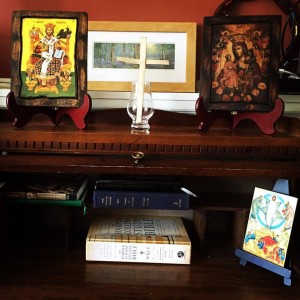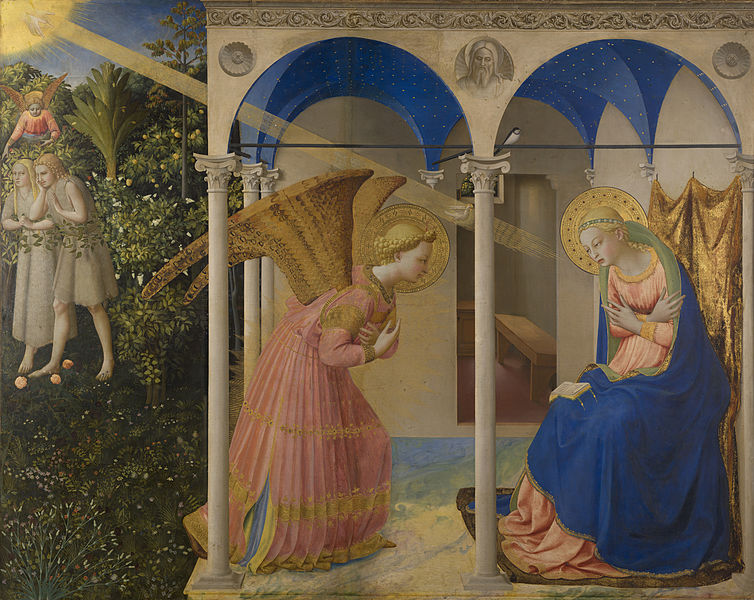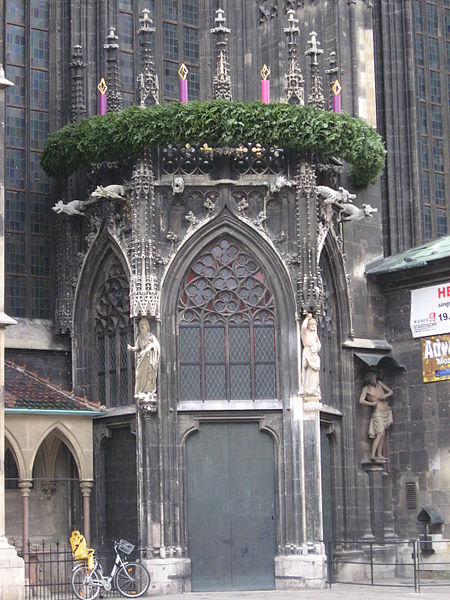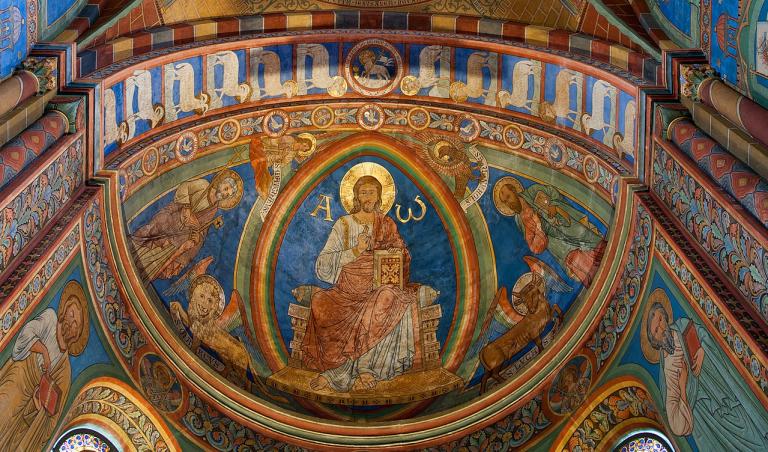David Russell Mosley

Ordinary Time
17 June 2016
The Edge of Elfland
Hudson, New Hampshire
Dear Readers,
Back at the start of the 2015/2016 Church Year, I wrote about how I needed Advent. Since then I’ve tried, and often failed, to have a meaningful Advent-Christmas-Epiphany, Ordinary Time I, and Lent-Easter-Pentecost. My prayer life has been lacking despite trying to use prayer aids such as the rosary, icons, and prayer books. I’m languishing. My prayers feel stale; I have no rhythm in my life. Or, more correctly, I have only bad rhythms in my life. Sometimes I try to blame it on being a stay-at-home parent; on only having one car; on anything other than truth: my desires are inordinate.
I recently finished reading James K.A. Smith’s You Are What You Love. Smith says this is the book he thought he was writing when he sat down to write his two books on Cultural Liturgies. Smith’s ultimate point is this: you are what you love; and you might not love what you think. He is, of course, just echoing centuries of Christian reflection on our disordered desire. Augustine is perhaps one of the most prominent theologians who explored this theme. “Our hearts are restless until they rest in you.” This beautiful, if over used, line from Augustine’s Confessions get at this reality. Our loves are disordered until we center ourselves in loving God. Everything else will flow from this place.
And so I reflect on my inordinate desires during Ordinary Time. Ordinary Time has its origins in Vatican II and refers to the fact that the weeks during this time are numbered (that there is an ordo or order to these weeks). However, I think there are other meanings we can draw from Ordinary Time. First of all, it is a time outside of the major seasons of feasts and festivals (Advent-Christmas-Epiphany and Lent-Easter-Pentecost). It is a time to see God at work during the everyday, the supposedly mundane. Seeing Ordinary Time through this lens reminds us that nothing is mundane, nothing is everyday. Every moment of every day is being continually suspended from the Almighty Trinity. There isn’t a moment, not a breath, that does not find its ultimate origin in God. The ordered nature of the cosmos is reflected in the ordered nature of the whole Church Calendar, Ordinary Time particularly. Perhaps this alone should be enough; the reminder that Ordinary Time is Extraordinary, yet there is something else.
I wonder about the relationship between the ordered nature of the cosmos and the disordered nature of my soul. If man is a microcosm then we ought to reflect the ordered nature of the cosmos and yet, so often, we don’t. Only Christ has lived a live so ordered. Yet we are called to imitate Christ, to participate in his Sonship. Perhaps the ordered nature of Ordinary time can teach me something about the inordinate nature of my desires and how, with divine aid, I can slowly bring my desires into right order. As Smith reminds us (again with the Tradition at his back), it is, in part through our habits that we can bring our desires into right order. Of course, we have a paradoxic here in that we cannot commit to right habits unless we love rightly and we cannot love rightly unless we have the right habits. By divine aid we must work on both simultaneously just as we must allow ourselves to be worked on by the Spirit as we work on ourselves. The spiritual life, it seems, is neither active nor passive in voice, but is, in a way, middle-voiced. We are one of the subject) of our spiritual growth and we are the object. We work alongside God, though his activity is prior to our own, to grow, to become holy, to be deified.
So, I am hoping that this Ordinary Time can be one where I learn and grow and love rightly. Where my desires may be properly ordered to the Good, the True, the Beautiful. This will not be easy and it will almost certainly be painful, but I hope and pray fervently that I will be transformed this Ordinary Time into something precisely Ordinary.
Sincerely,
David












